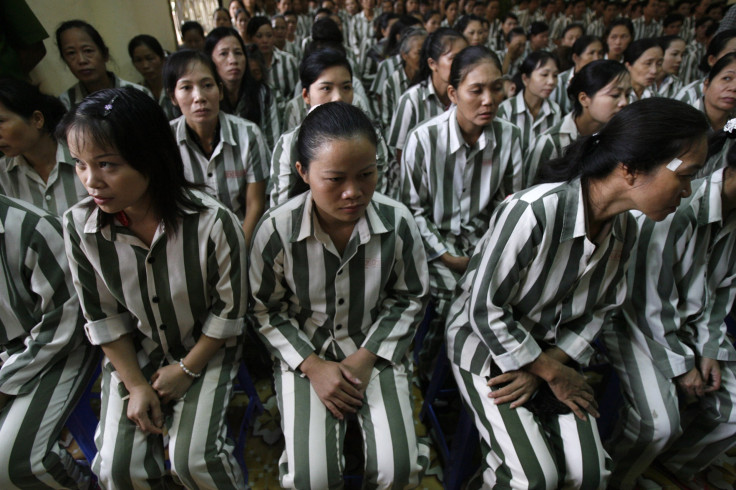Dead Men Waiting: Vietnam Plans To Make Own Drugs For Use In Lethal Injections

Authorities in Vietnam will be forced to manufacture their own poison for use in lethal injections for convicted prisoners sitting on death row, due to foreign companies' refusal to sell such drugs.
Suppliers from the European Union strictly regulated the export of drugs that are used for capital punishment, torture or other forms of inhuman treatment.
Vietnam.net reported that 532 inmates are currently languishing in local jails waiting to be executed – mostly for crimes such as drug trafficking, rape and corruption.
BBC reported that Vietnam ceased using firing quads to execute prisoners in July 2011, citing, among other things, the rising costs of such procedures and the “stress” suffered by the executioners. No executions have been carried out since that time since officials have been unable to acquire the necessary drugs required to carry out lethal injections.
But now, given that prisons are filling up with condemned prisoners, some Vietnamese officials have called for a return to firing squads.
A number of high-profile death-sentence cases have emerged recently in Vietnam.
Last November, a court sentenced a 61-year-old Filipino woman to death after she was arrested for smuggling illegal methamphetamines into Vietnam. Amodia Teresita Palacio was charged with possessing more than 5 kilograms (11 pounds) of the drug at an airport in Hanoi in April, Agence France-Presse reported.
In a trial she was convicted of repeatedly attempting to enter Vietnam from Thailand to sneak drugs in.
Vietnam boasts some of the toughest drug laws in the world -- the possession of more than one-half kilogram of drugs can mean the death penalty.
Other “crimes” can also lead to execution.
In late December, police arrested 14 Catholic human rights activists for “subversion” after they went online to expose incidents of corruption among Communist party officials. The official charge under the nation’s criminal code was "carrying out activities aimed at overthrowing the people's administration."
AsiaNews reported that about 40 activists and bloggers were convicted of similar charges under a directive by Prime Minister Nguyen Tan Dung to crack down on dissent, particularly those who disseminate information over the Internet.
Dung ordered police "to prevent the formation of opposition political organizations."
"We are deeply saddened by the actions of the government of Vietnam," Father Le Quoc Thang, secretary of the Justice and Peace Committee of the Bishops' Council of Vietnam, said in reaction to the mass arrests.
"They claim Vietnam is under the rule of law, but their behavior is not in accordance with the law."
Phil Robertson, deputy director of the Asia division at Human Rights Watch, said that state repression in Vietnam has been tightening for years.
“Vietnam finds itself in a rapidly developing economic and human rights morass,” he wrote.
“With the ascension of [PM Dung] in 2006, Vietnam has seen several intensifying trends. First, cronyism and corruption in state enterprises, and an epidemic of seizures of land by well-connected foreign and national investors, has fueled popular anger with [Communist Party] officials using their positions to enrich themselves. Second, Dung has worked closely with police allies in the Ministry of Public Security (MPS) to keep a lid on dissent, and his connections with the ministry have made him one of the most powerful prime ministers in recent memory.”
As a result, Robertson added, independent writers, bloggers, religious leaders and activists who “question government policies, expose official corruption, resist land seizures and expropriations, demand freedom to practice their beliefs or call for democratic alternatives to one-party rule are routinely subject to police harassment and intrusive surveillance, detained incommunicado for a year or more without access to legal counsel and sentenced to increasingly long prison terms in one-day trials for violating vague national security laws.”
© Copyright IBTimes 2024. All rights reserved.











